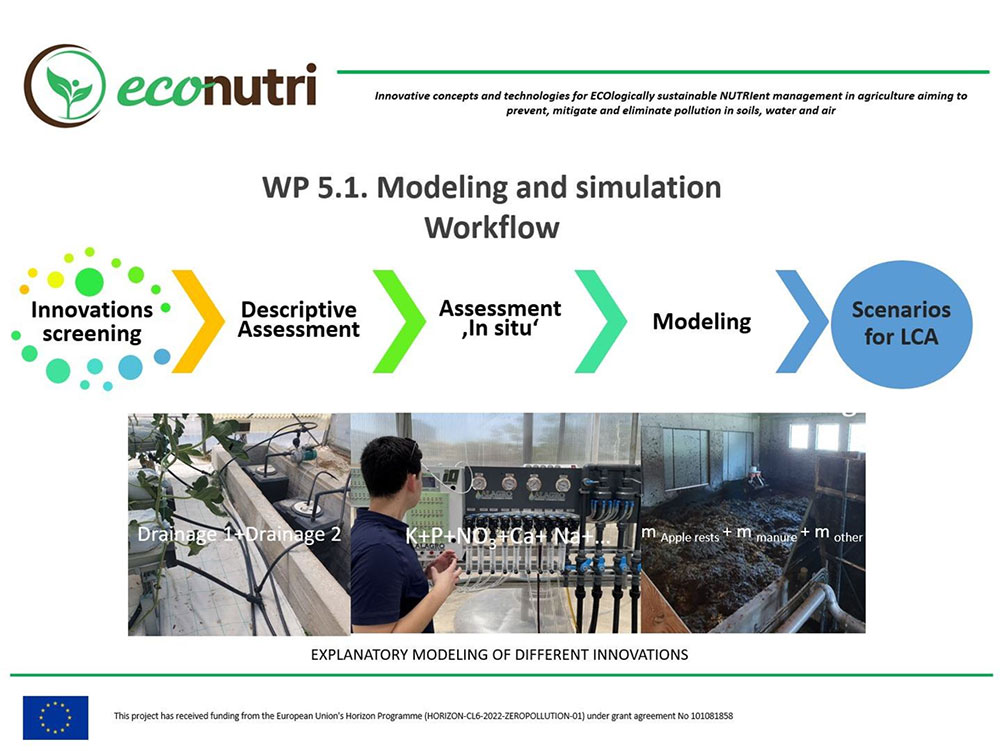LEIBNIZ INSTITUTE FOR VEGETABLE AND ORNAMENTAL CROPS (IGZ) E.V.

In the department of “Controlled Environment Horticultural Systems” (HORTSYS-IGZ), we create model-based monitoring using systems modelling and sensor technology, aiming at resource-use-optimized production. We use our research for environmental control and resource conservation in greenhouses and controlled environments.
HORTSYS-IGZ participates in ECONUTRI project in:
- WP5 Environmental impacts, life cycle analysis & socioeconomic aspects as WP Leader
- WP5.1 Systems modelling and environmental assessment as responsible for Subtask
- WP2, WP3 and WP4 as collaborators for modelling selected innovations
The main task of IGZ is to develop mass balances and mechanistic models for predicting the behavior of nutrient loss reduction under different scenarios of four different technical innovations within the agricultural sector. Furthermore, IGZ collaborates with the Agricultural University of Athens, Greece (AUA) and the Environmental Social Science Research Group, Hungary (ESSRG), to conduct life cycle and socioeconomic assessments.

These innovations are:
- Technologies for nutrient recovery from organic waste by Italian partners Università degli Studi di Torino (UNITO) and the biogas plant Wipptal BiWi
- Real-time sensing with ion selective electrodes (ISEs) to maximize nutrient recycling in soilless cropping by the two Greek partner institutions the Agricultural University of Athens (AUA) and Nutrisense, developer of the decision support system software
- Cascade hydroponics, a crop soilless-cultivation system for drainage re-use, by the University of Thessaly (UTH)
- Innovative treatment of bacteria strains with organic matter degradation properties, for better composting and phosphorus, iron, and other nutrients recovery, by Universidade de Tras-os-Montes e Alto Douro (UTAD) in Portugal and Instytut ogrodnictwa – Panstwowy Instytut Badawczy (InHort) in Poland.
In the course of the project, the selected EcoNutri innovations will be assessed in terms of:
- Reduction of nutrient loss from manure and plant residues
- Reduction of water pollution caused by nitrate and phosphorus leaching and run-off from cultivated soil nutrient loss
- Improvement of nutrient use efficiency in soilless systems
- Reduction of greenhouse gas and ammonia emissions from organic biomass during storage, composting, and land application
- Environment performance
- Consumer readiness to accept innovative agricultural production





